TwinRabbit
Stolen Anarchy
Playing Indian & The Roots of Collectivism
[Trelane] “You must excuse my whimsical way of fetching you here, but when I saw you passing by I simply could not resist!”

[Rabbit] As we’re all aware, working within the algorithm can require a bit of misdirection, but my title isn’t strictly a lie either.
Ideas don’t come from singular geniuses. They come from groups of people deciding that something has merit. Which means ideas as big as Marxism, or Communism, or Anarchy didn’t just miraculously appear. They were inspired by and perpetuated by groups.
The thing is... All too often Credit is being given for that work, which was far from original, and in it happening very specific groups are being left out of the story entirely. I aim, in my own small way, to attempt to correct that.
Please join me on my journey.

Lewis Henry Morgan was a fanboi. Really, he was the fanboi. He was such a fanboi, he created his own Members Only Club so that other people who fanboyed as hard as he did, could dress up as their favorite characters and periodically march down the street chanting in a made-up language.
Morgan loved cosplay. He wrote books about the characters he liked the most, he and his friends would get together regularly in meatspace... It was the whole cliche. These days none of it sounds particularly remarkable, but it stands out a little more when I say: Lewis was a fanboi, in 1841. And the club that he was a part of was ‘The Order of the Iroquois’.
A backstory... The first one. Brace yourself, this part’s completely silly in the way only a true fandom club can be.
[rockabilly music starts]
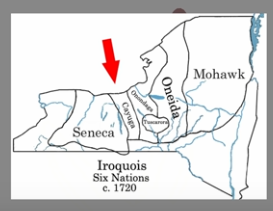
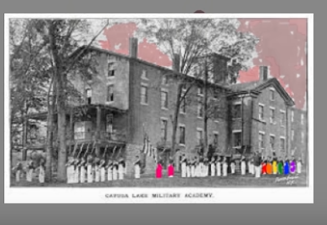
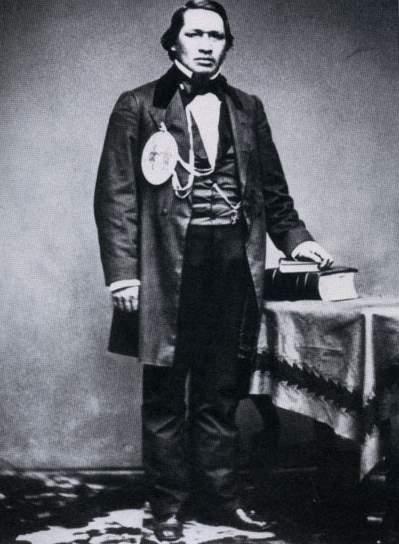
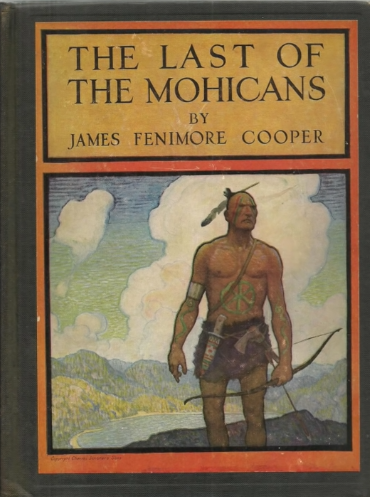
[music ends]
Morgan so enjoyed the initiation part, He even called it “indianation”, which he pretentiously described as, “the process where a new member transformed themselves into the very spirit of the Iroquois!” I told you it was a fandom trope. It’s kind of exactly like a bunch of bored white guys dressing up like samurai, calling themselves “The New Shogunate”, and holding meetings once a month at the Waffle House down the street. Back to our story:
Now, picture this, a fanboy... browsing through some fanfic at a comic-con, and while he’s standing there an actual real-life Klingon walks up and asks him where the bathroom is. Or an otaku, about to buy the latest issue of his absolute favorite manga, and Goku asks him where the “Yuri on Ice” coloring books are.
It should come as no surprise then, that the heart of the founder of the Order of the Iroquois, would sing with delight if he ever got the chance to share his meatspace with the object of his obsession.
Exactly this happened to Morgan when, while shopping in a bookstore in the 1840s, he accidentally ran into Eli Parker. See Eli Parker was an actual Iroquois, and he was a member of the Seneca Tribe. By the time he met Morgan, Parker’s dad was already a famous Seneca orator and diplomat, and Eli had begun studying US law at a New York law firm.
Back story number two: [light hip-hop music starts]
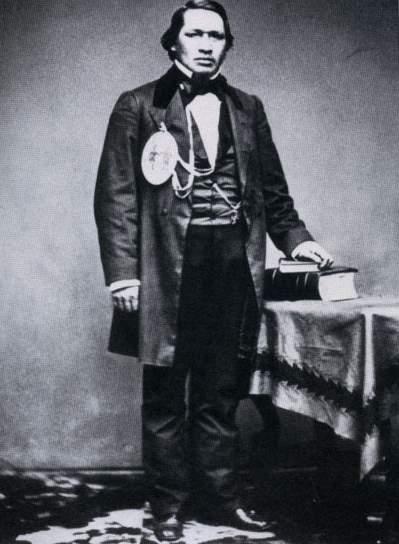
Despite that fact, Parker demonstrated his abilities so well, he was eventually appointed as primary secretary to General Ulysses S. Grant during the Civil War, ultimately rose to the rank of brevet Brigadier General, and was the author of the surrender of Appomattox. After Grant was elected president Parker was appointed the Commissioner of Indian Affairs.
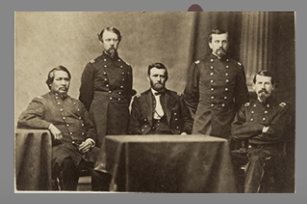
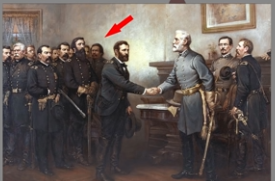
By the time Morgan died, in 1881, he’d published half a dozen texts on: The kinship system of the Iroquois... The architecture of the Iroquois... The ceremonies of the Iroquois...
For all that Morgan has been given such illustrious titles as: “The Father of Kinship Studies”, and “The Father of American Anthropology”. His work was so often quoted they started using US native tribes to name various kinship systems. A method which only died out in the last few decades. His work was so pervasive, I can remember seeing his book: “Systems of Consanguinity and Affinity of the Human Family” on an undergrad recommended reading list, even though it was published in 1871.
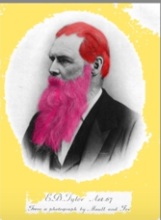
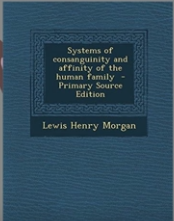
Their argument goes like this: Humans go from trying to stab each other randomly with sticks, to organizing a specific group of people who stab each other with sticks, to inventing guns and taking over the people who still fight with sticks. Find a society anywhere in the world and you can figure out which part of the Universal Timeline of Progress they’re on by how they’re organized, and whether they’d make a good setting for your steampunk short story.
At one stroke Tyler and Morgan had created two racist tropes that would influence countless European writers from Jung to Byron, and Kipling to Tolkien: First, the myth of the Noble Savage who doesn’t understand property. [wood flute music begins] Whose freedom from the constraints of civilized society make him both childlike, but also more in touch with his natural surroundings. And second: The myth of the bucolic and peaceful prehistory, which you can study if you find the right primitive group of people.
This was perpetuated by groups like the Romantics back in Europe who were writing fiction that... pretended to be critical of the aristocracy and technology. While lounging in expensive houses. Authors like: Voltaire, or Diderot, or John Keats, loved the idea of what became known as, “Before the Fall” narratives. So much so there’s a word for it in literary studies: “prelapsarian”.
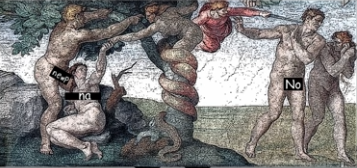
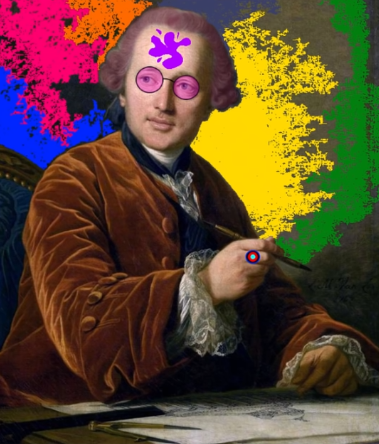
But Bougainville, like Diderot, was French. Unsurprisingly British poets like Coleridge preferred referencing British explorers. So men like George Shelvocke or Philibert Commerson.
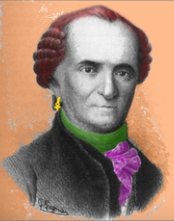
And, of course, a huge inspiration for these narratives was the inimitable Captain James. Backstory number three:
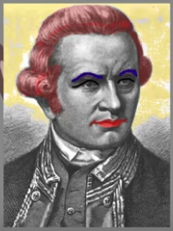
To this day the only actual town celebrating Captain Cook is on Big Island, which isn’t where he first landed. That’s at the other end of the island chain. No, the town Captain Cook is where he was killed.

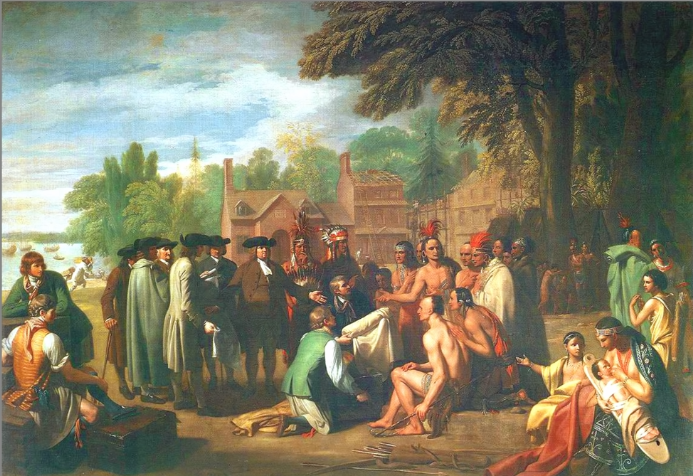
Okie-dokie before moving away from the so called explorer stories completely, there are also the writings of William Penn to consider. He was not an explorer necessarily, he somewhat accidentally became the governor of one of the original British colonies on the northern continent of the Americas. Handily, it’s not hard to figure out which one because it was named, Pennsylvania.

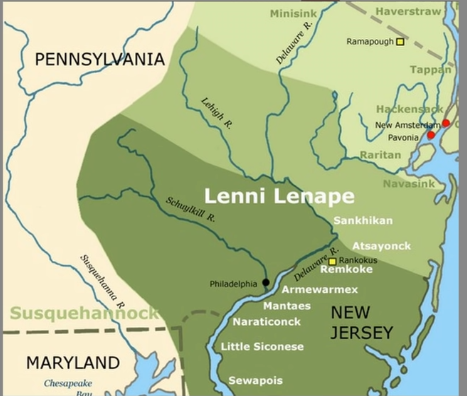
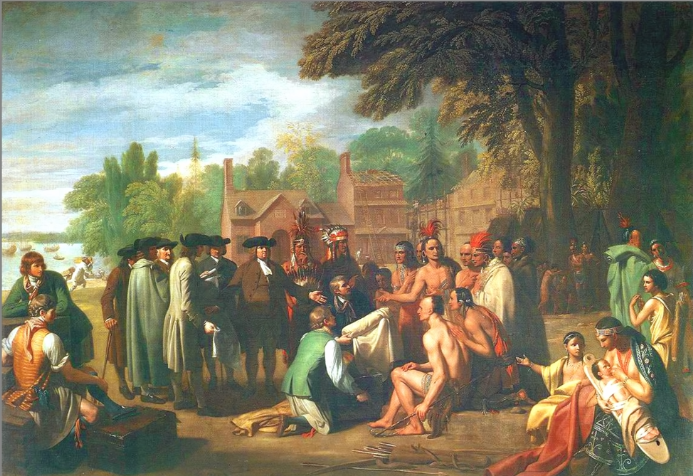

Anyway, the Quakers had as an article of faith a practice of refusing to swear oaths to God in court, they felt it was a form of taking the Lord’s name in vain. They also didn’t technically recognize titles. They would recognize that someone was respected within their community, but they did not personally bow before kings. So Penn very intentionally negotiated with several chiefs rather than just one. An act that the Natives took as a sign of respect of their diversity.
So, for all involved, the handshake, and the record of the handshake, was the binding document. But a wampum belt isn’t a contract in British courts. This is where poet and satirist Voltaire comes in. Backstory number five: [classical music begins]

“...This is the only treaty between those people and the Christians that was not ratified by an oath, and that was never infringed”.
[normal accent returns]
At other places, he applauds the Quakers for looking non-threatening, So the natives stay and talk, [worse French accent] “ instead of flying off into the woods”. He emphasizes how wonderful it was that they “flocked in crowds to see Penn to offer themselves as his vassals”. [normal accent, finally]
This is noteworthy for several reasons.
The first: Voltaire conveniently leaves out the part where, in nearly every other colony, they’d experienced several violent battles with local Natives and come off the worse for it. The Wopping War, The Peach Tree War, and The Pequot War... They had all ended less than twenty years before. And the Anglo-Powatan Wars ended with Charles II having to concede to the Natives. The French & Iroquois Wars were still going and wouldn’t even be over for another 30 years. Where he got, “Flying off into zee woods”, is anyone’s guess.
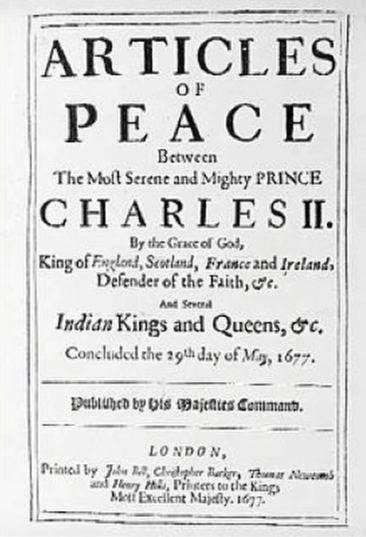
Returning to Penn though, knowing the wars, the violence, the sometimes outright hatred, that existed between the Europeans and the Natives, Penn chose instead to live with the Lenape and learn their language to demonstrate trust. Far from Voltaire’s absurd ideas about appearing benevolent, Penn respectfully engaged with the tribe and their government. He even wrote several documents about the organization of their society and how complicated and regimented the process of engaging with their elders counsel could be.
One letter is important here. It’s dated the 28th of July 1683. It’s a letter to his friend Robert Spencer who was in France from 1640 to 1702 who also happened to be the Earl of Sunderland in England
[letter read in an absolutely terrible vaguely British accent]
“For the People [the Indians]; they are Savages to us, in their Persons, and furniture; all here is rude; but they have great shape, strength, agility; and in Council (for they (tho in a kind of Community, among themselves) observe property and Government) they speak seldom, enter spaces of silence, short elegant, fervent, the old sit in a half-moon upon the ground, the middle-aged in a like figure at a little distance behind them, and the young in the same manner behind them.
None speak but the aged, they have consulted the rest before; thus in selling me their land they ordered themselves; I must say, yet obscurity considered, wanting tradition, example and instruction, they are an extraordinary people.”
[Normal accent returns, thankfully]
By the way, I don’t mean to suggest that Penn was flawless, he was a terrible Anthropologist by today’s standards, and he thought the reason that Natives existed was they were a Lost Tribe of Israel mentioned in the Old Testament. He was, however, a fair humanitarian who took the Lenape and other indigenous populations on their own terms, rather than manipulating them into a handy shorthand for ignorant and childlike proto-humans.
Tellingly, he doesn’t say they have no government, he specifically says it’s “obscure”, the very opposite of the fantasy easily interpreted and primitive that other Europeans would claim in order to flatter themselves.
Which means, by the time he was writing, (only barely a century after Europeans figured out there was a continent full of people nearby) the “Noble Savage” image of Natives was already floating around in Europe for Penn to be pushing up against. Pacific Islanders, and the northern North American tribes, were pretty famous, but as I say, famous as much as a proxy for quasi-nostalgic poetic license back in Europe, as famous for who they really were.
Why should anyone care about William Penn... Voltaire... Coleridge... Diderot... or Morgan?
Well besides their possibly helping out a pub quiz, seemingly, not much. Except when it comes to the friends of all those people. Even though Lewis Henry Morgan put Eli Parker in the credit for his first text “League of the HoDeNoSauNee or Iroquois”, in 1851, it didn’t really help, because there was no co-author credit and he never really credited Parker again.
However, Morgan got a co-author credit when someone else wrote a book about him. Specifically, Frederick Engels gave him part of the title in his magnum opus: “The Origin of the Family, Private Property, and the State” was subtitled “in the light of the researches of Lewis Henry Morgan”.
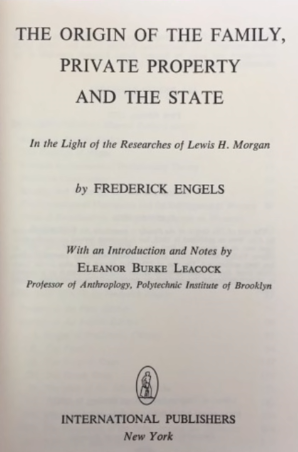
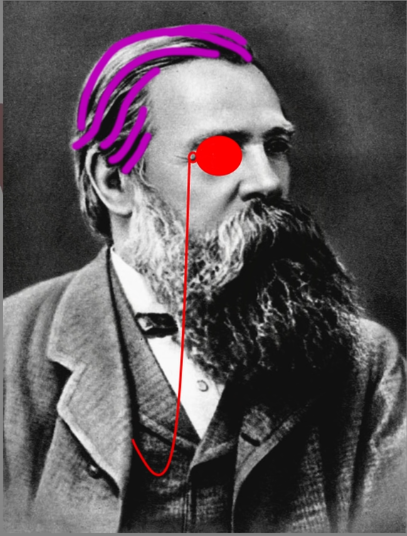
The Greek and Roman gens, an enigma to all previous historians, was now explained by the Indian gens, and thus a new basis was found for the whole history of primitive society… Clearly, this opens a new era in the treatment of the history of primitive society. The mother-right gens has become the pivot around which this entire science turns...”
[accent ends]
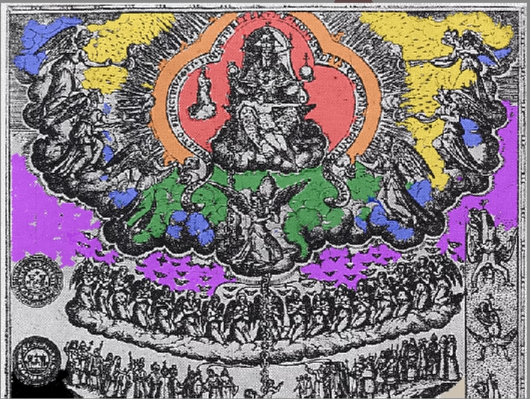
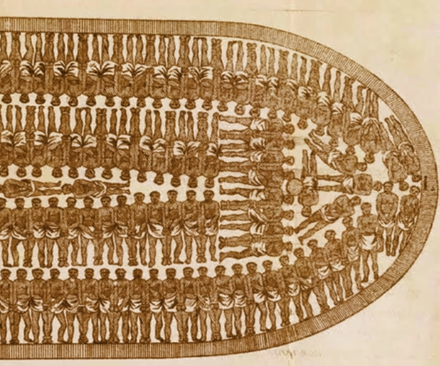
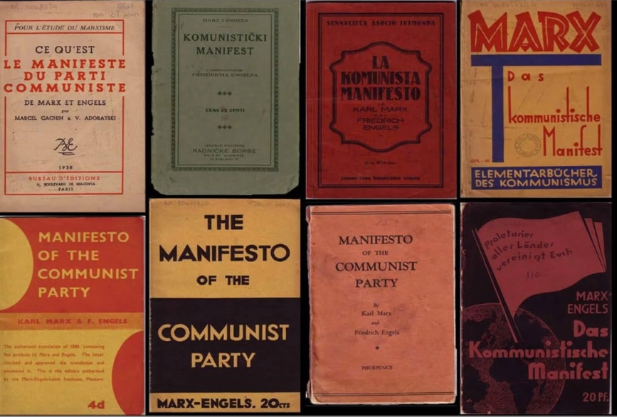
Which isn’t surprising because the trope Morgan helped to invent was precisely what Marx eventually called “Primitive Communism.” Marx said previously he’d proven “Primitive Communism” existed by working backward from the more recent history of slavery, feudalism, and capitalism, proving by induction that Primitive Communism must have existed somewhere in prehistory.
With Morgan’s work, they supposedly had scientific backing to confirm their theory. Of course the fact Penn had proven them all wrong 50 years before, and the fact Morgan’s definition of progress hinged on the very resource hoarding, and complex class hierarchies that Marx and Engels were attacking, Marx and Engels handily ignored. Much as Voltaire and Diderot had ignored the complexity of the societies they used as a backdrop for throwing spitballs at the Pope 20 years before.
I’d also like to note those familiar with more Nationalistic rhetoric, should start noticing some themes and terminology, because Morgan’s and Marx’s work was also used to justify forcing primitive cultures to catch up or even just remove them. Lest we bring everyone else down.

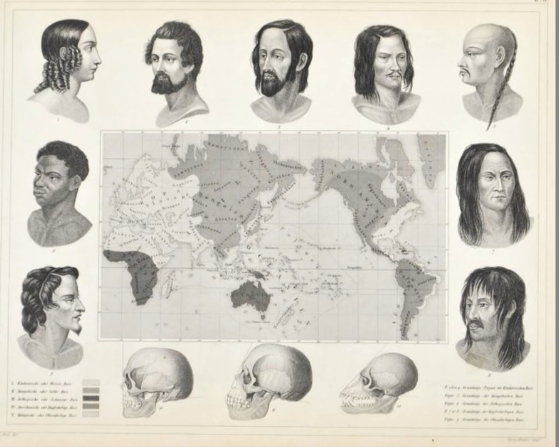
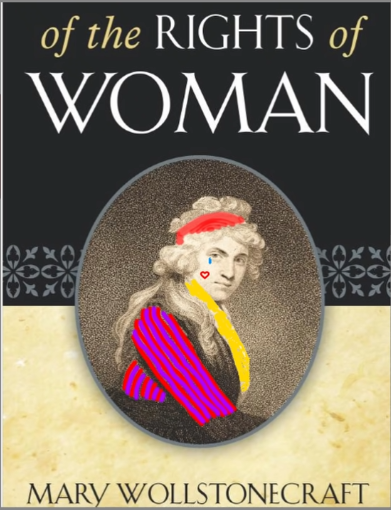
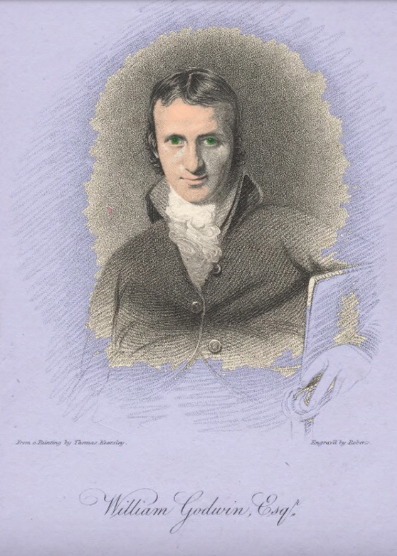
Am I saying that in certain contexts, Marx, Engels, and Godwin should be included in lists of more overt white supremacists like Galton? YES. And I’m not the only one saying it either. When they republished Engels’ original essay for “Origin of the Family”, one century later, the editors of “Population & Development Review”, prefaced their December 1988 issue by saying,
[Reading in a refreshingly straightforward Midwestern US accent] “Occasionally, an unmistakable tinge of what today would be labeled male chauvinism appears. Also, perhaps more surprisingly, there is a strong element of Social Darwinism, normally associated with conservative thought and politics, in the argument presented [by Engels].” ~p707
[accent over]
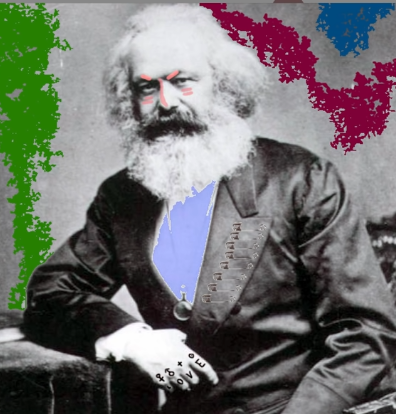
First a bit of spot the name: [peppy calliope music plays]
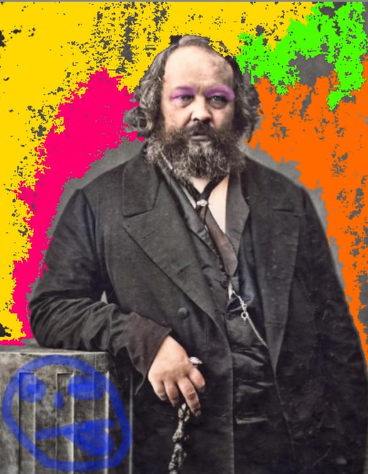
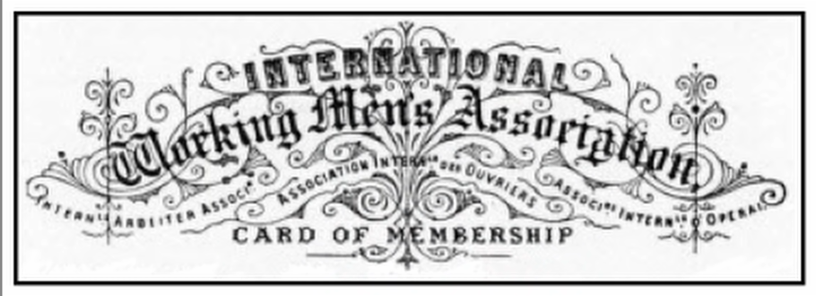

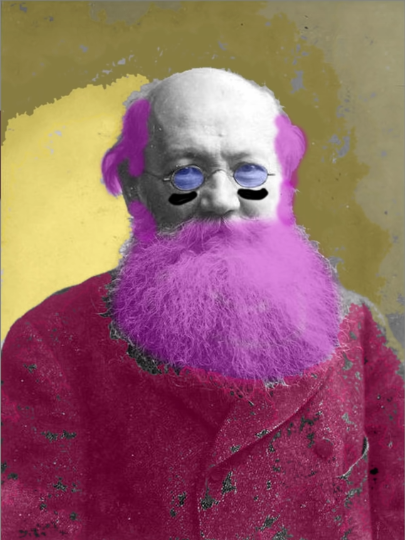


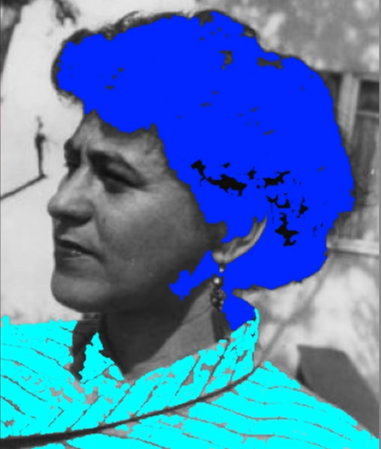
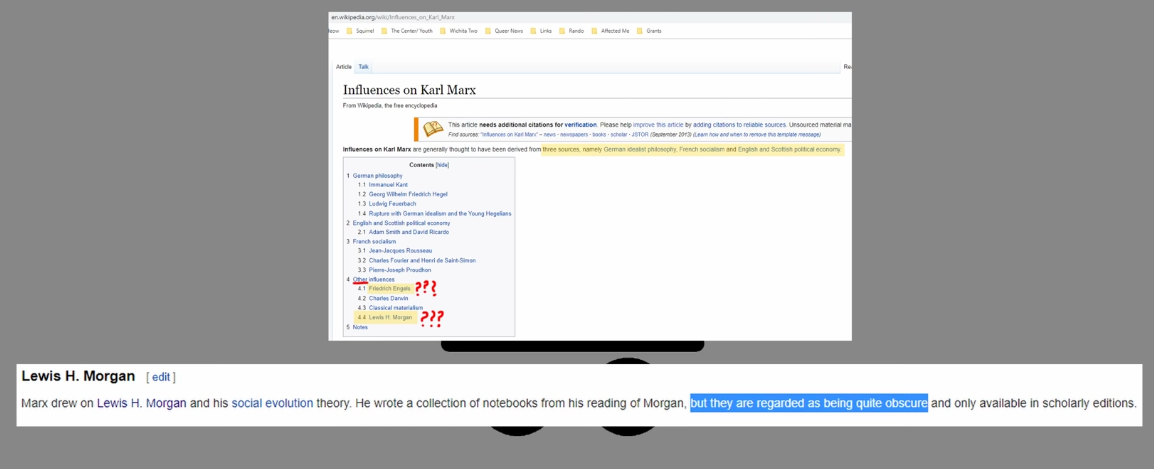
Scholar EB Thompson in, “The Poverty of Theory and Other Essays” goes on and points out that,
[somewhat southern US accent] “Marx and his increasing preoccupation in his last years with anthropology was resuming the projects of his Paris youth”

Paris, where Lord of Sunderland was when Penn was writing to him, [classical music begins] where Voltaire was celebrating Quakers and mocking Natives for being forest dwellers, where Diderot was writing obnoxious racist satires of Tahitian villagers not wearing underwear, that Paris.
Plus, in those notes, we find Engels writing sympathetically of American Shaker communities. Which he argued proved, [the terrible German accent returns]
“Communism is not only possible but has actually been already realized”. [normal again]
The Shakers, who are an offshoot of the Quakers, who set up shop in the supposed wilderness of New York, where the Iroquois live. Those Shakers.
And just in case there’s any question of who’s influencing who, from what Engles scholars would eventually title “Economic and Philosophical Manuscripts”, page 142:
[The frighteningly bad German accent returns]
“Marx came to realize these primitive communities had incomparably greater vitality than the Semitic, Greek, Roman and fortiori the modern the modern capitalist societies. The the wealth of subjective human sensuality, Iroquois society stood much higher than any of the societies poisoned by the pestilential breath of civilization.”
[end accent]
Engels wrote those words in 1844. Before he wrote the “Communist Manifesto”. Yeah...
So, this happened. And it kept happening, for roughly a century’s worth of European, Anthropology, Sociology, Political Theory, Philosophy, and Literature. This isn’t just interesting speculation. Voltaire, Diderot, Karl Marx, Frederick Engels, William Godwin, Mary Wollstonecraft, Mikhail Bakunin, all of these “original voices” can be traced directly back to Tahiti and the eastern coastal tribes of North America.
Oh, and when I said the social Darwinism would stop being subtext it eventually just became text. Here’s the thing, Eli Parker and the Lenape didn’t get credit from any of these authors. Not in the foundational work, not a “thank you” for allowing researchers access to their tribes and histories and ceremonies.
Nada.
Morgan was eventually adopted by the Seneca because they thought his interest in connecting with them was genuine. Yet, not only was there no co-author credit by anyone, they were eventually used to represent throwbacks to prehistory. Something Marx and Engels and Godwin and Wollstonecraft and Kropotkin and Prudhon and Diderot had “evolved” past.
The Quakers were so completely ignored Engels gave credit to their offshoot. Which arrived afterward, and into an environment already negotiated peacefully, with the very people Engels and Marx claimed were incapable of comprehending property ownership. If that weren’t insulting enough, Feminist critiques such as those advanced by Luxembourg ended up being nonsensical.

[light jazz music begins]
They are both known to be the bringers of the law. Anyone who’s ever had to read Longfellow’s “Song of Hiawatha” in an English Lit class, it’s that Hiawatha. These guys are well known.
The Law of Peace, along with the elder council traditions of the Lenape, the Cherokee, the Powatans, the Creek... Really, most of the East Coast tribes, were well known throughout the original 13 British colonies. It was so well known it was part of the inspiration for what would become the US Constitution.
Historian Charles L Mee jr. cites South Carolina’s John Rutledge as an example. Rutledge opened one committee meeting during the Second Continental Congress by reading from a 1520 treaty, itself quoting the great law.
[oddly southern US accent]

Rutledge commended the phrasing to his colleagues. And so, in some small part, the preamble of the new constitution, was based on the law of the land as it had been on the East Coast before the first white settlers arrived”.
[back to normal]

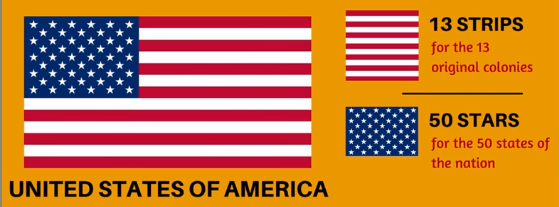

Which is why I say the idea the feminist critiques of Marxism that came later, bordered on insulting. I was being intentional, it’s because of the Great law of Peace. Its various rules, called “articles”, are numbered. I cite two key articles to make my point. The first is:
[read in a fairly direct, clipped accent]
§37: “There shall be one war chief from each nation, and their duties shall be to carry messages for their chiefs, and to take up arms in case of emergency. They shall not participate in the proceedings of the Council of the League but shall watch its progress and in case of an erroneous action by a chief, they shall receive the complaints of the people and convey the warnings of the women to him...”
The second is:
[read in the same clipped accent]
§44: “The lineal descent of the people of the Five Nations shall run in the female line. Women shall be considered the progenitors of the Nation. They shall own the land and the soil. Men and women shall follow the status of the mother.”
[accent ends]
So, representatives directly answerable to the people who cannot act without the people’s direct permission. Leadership who is beholden to the people collectively but more importantly to the women of their Council specifically.
Notice, it doesn’t say the advice of the women, it says the warnings of the women. Penn didn’t say the old and middle-aged men sit in a half-moon. He said the old and the middle-aged. Article 44 does not say “unless her husband objects”. It says women shall own the land. Period.
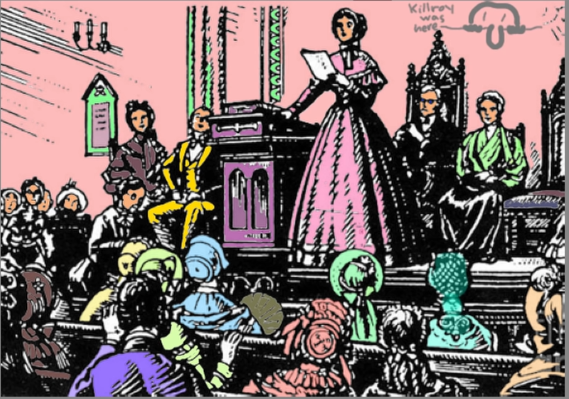
Perhaps you see what I mean. As one scholar I read put it: an Iroquois woman, attending that Convention, could be forgiven for finding it mildly insulting to suggest that she should demote her to mere equality with a man.
So with feminist and anarchist critiques of Marx the internal narrative went full circle. It’s a response to Morgan and Diderot’s intentional misreading of real tribes, to create their pet theories. It’s a debate over fanfic. Satisfying to the purists, maybe, but bordering on impenetrable for the casual audience. It becomes a redundant criticism. A bad third-hand copy, of a secondhand story, cribbed from another guy’s notes, without acknowledgement.
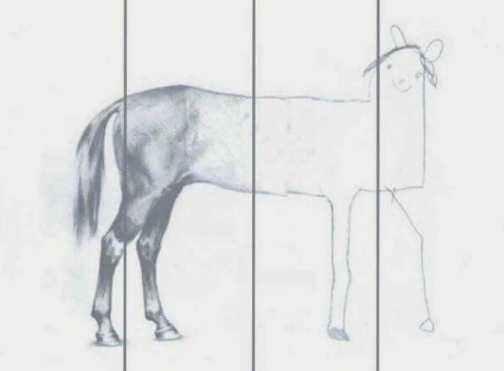
The annoying point here isn’t the amount of evidence necessary to suggest that Communism and Socialism and Anarchism aren’t an original idea, it’s the amount of evidence necessary simply to demonstrate Europe isn’t the font of all wisdom and insight.
To put it bluntly, within Leftist discourse, informed by European Anarchism and Communism, overall left-leaning progressiveism doesn’t have a race and gender problem that needs to be addressed before it gets out of hand, European anarchism and communism is the problem.
Take two handfuls of sugar, mix them into a dough, bake it. Now take the first handful of sugar back out. The bigotry isn’t the icing, It’s the cake.
When I see left-leaning theorists and commenters, lamenting how there are so few minority voices, I suspect it’s because they don’t realize the very language being used is already alienating too many of us. It’s not a matter of phrasing, or throwing around the word “privilege”, it’s comprehensive, the very way the questions and answers are framed and stated.
I want to say at this point my intention here isn’t to invalidate European socialism or communism or Anarchism or the discussions which have grown up around them. [light blues music begins] Those who are embedded within systems those arguments were responding to, still have merit within those systems.

Instead, I wanted to demonstrate an aspect of cultural erasure that is rarely if ever discussed in more left-leaning circles. I’m not going to speculate why, though I have my own theories, I only mean to show that it occurred and it needs to be considered before moving forward. More importantly, this isn’t simply giving credit where it’s due. I’m not interested in claiming Natives should get the copyright to Karl Marx or the US flag, US Constitution.
Any astute modern radical could easily argue the current issues are so distant from their founders, that authorial intent is largely irrelevant. That might even be true. But it presumes the Native side has not also progressed, and that we are not also confronting those same issues in our own way.
We’re not museum exhibits, we’ve moved on from who we were when Penn was writing his letters four centuries ago. We didn’t simply write those concepts off as lost goods. Which means this isn’t merely about the past, it contributes directly to modern debate and discourse, erasure and decolonization.
Just as an example, the Iroquois League and Lenape Council House have centuries behind them. They withstood Wars, genocidal settlers, expansionist empires, International slavers... Communist and Socialist countries today are considered well-worn if they manage a few decades.


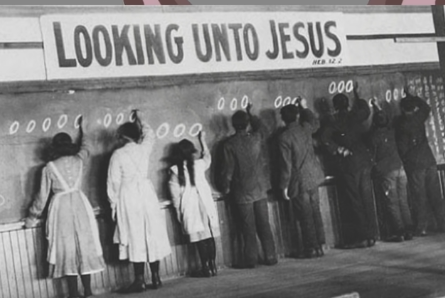
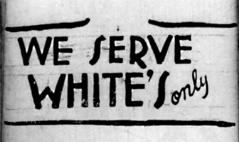
Now, if you’re looking for text recommendations
I’ll suggest a few here and put them in the summary.
Start with the “Great Law of Peace”. Get your Communism and Socialism Theory where it should be gotten, from the source. It’s not a short read, it’s not an overly long one either.
Following that I suggest a more accurate historic account of Native and settler relations and realities. A good one would be “1491: New Revelations of the Americas Before Columbus” by Charles Mann.
Don’t fall into the trap of allowing those works to justify some newfound sense of righteousness, or worse white guilt. For those of us who’ve been on this side for a while, we would consider these starter texts. Coming at us with ‘newfound information’, it’s going to look like a try-hard.
Plus, guilt can far too easily turn to anger and zealotry. Absorb what they have to say. Then when you’re ready two more texts: “Columbus and Other Cannibals” by Jack Forbes for some deep history and some worldview, and then “Anarchism in Latin America” edited by Carlos Rama & Ángel Cappelletti for more recent history.
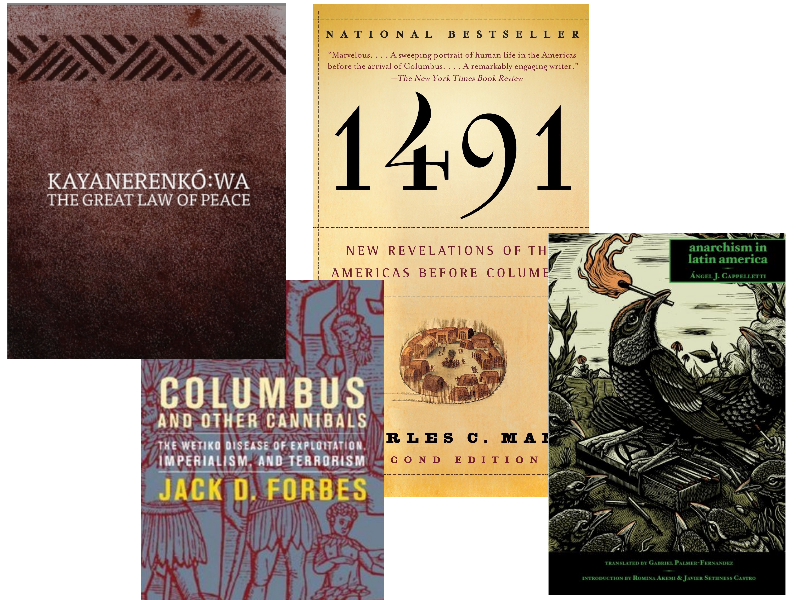
Even harder when someone’s already had to shift themselves once before, away from the more common messages of American Exceptionalism or, in fact, Western Exceptionalism, and the constant drone of subliminal Manifest Destiny that even classical Marxism and Anarchism perpetuated.
Give yourself time, and be good to each other. If you’ve enjoyed my little paw print on the youtubes, please like my video and maybe even subscribe to my channel. So you’re more likely to see my next update. Also, if you really like this, check out my patreon listed below, and toss a few dollars my way to request something you’d like to see discussed. Most of all, I hope you have fun.
